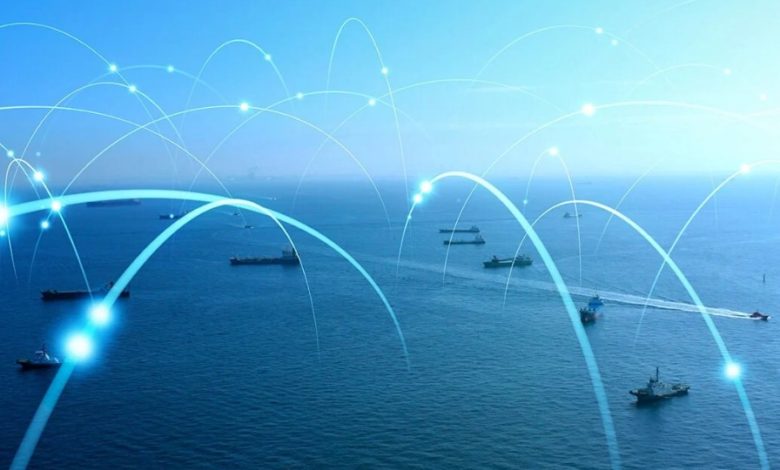 [[{“value”:”
[[{“value”:”

Internet use is now a critical factor in seafarer satisfaction, something that will only accelerate in the years ahead. The final installment from Ship Concept 2035.
An in-depth Inmarsat survey of nearly 400 seafarers working on merchant ships, offshore support vessels or high-end fishing vessels across the globe shows that seafarers are increasingly experiencing a sense of a ‘floating home’ when it comes to their time onboard, a portent of what’s to come over the next decade.
Seafarers spend an average 8% of their annual salary on internet connectivity, the survey found, with the cost split equally between their usage at home and onboard their vessels.
When at sea, video calling, voice calling, and messaging family and friends were the most popular uses for the internet, with a huge majority saying the connections positively impacted their mental wellbeing.
Seafarers spend an average 8% of their annual salary on internet connectivity
During long voyages, seafarers said they were 23 times more likely to feel positive effects from these personal interactions, rather than negatives.
Staying in touch with friends and family were the main reasons given for needing connectivity, although seafarers also cited managing work-related tasks as important, as ships increasingly depend on real-time data for both compliance and competitive advantage.
Around two thirds of respondents put personal video or voice calls and text messaging in their top three uses for connectivity. Less critical, but still pronounced, were top three preferences for social media (51%), web browsing (34%) and watching movies, TV shows, sports or other streamed content (29%). A small proportion identified shopping (11%) and gaming (8%) as top three online activities.
However, while 97% of these seafarers actively manage their own data usage at sea, more than four out of five said they exceeded their limit – with more than a third saying it happened often. Furthermore, a mixed picture emerged regarding satisfaction with connectivity at sea.
Of those surveyed, 28% said they were dissatisfied with the cost, while more than half said they would be willing to pay more for better connections.
Overall, internet usage among seafarers increases while they are in port, with 61% reporting higher usage and only 15% using it less. On average, seafarers use the internet 18% more while in port compared to when they are at sea. Although those who use their mobile phone plans often find it cheaper than vessel connectivity, the majority of the survey respondents (52%) indicated a preference for ship connectivity over their mobile plans or port wifi.
In a remarkable finding, 83% of the surveyed seafarers expressed concern about security and privacy while using a vessel’s internet – with one in nine of the seafarers reporting a data security issue, such as hacking or data loss, while connected to a vessel’s internet.
Clearly, for this seafaring constituency, work remains to be done on security before a ship can truly merit the comfort of a floating home.
The post A lifeline to home and increased productivity appeared first on Energy News Beat.
“}]]
